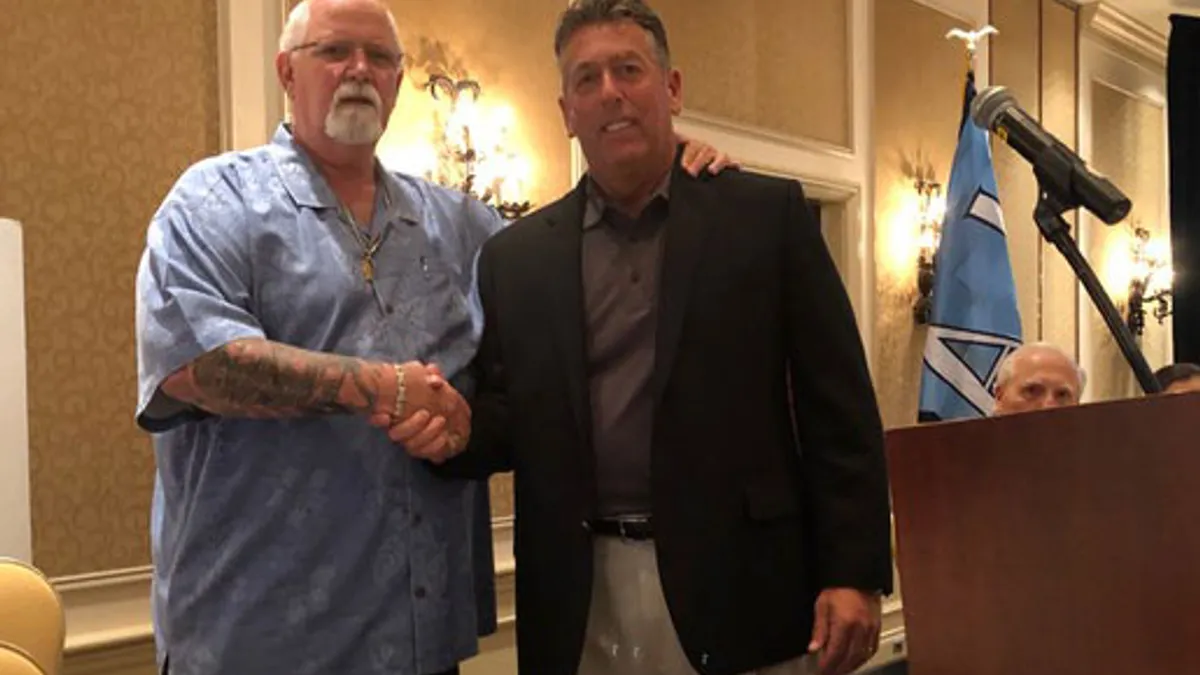Dive Brief:
- All of the local chapters of the International Longshoremen's Association (ILA) voted to approve a new six-year master contract with the United States Maritime Alliance (USMX), as of 10 p.m. on Thursday, according to a press release.
- The vote was the last step to securing labor peace at most of the East Coast and Gulf Coast ports, which are represented in negotiations by the USMX. The new contract will expire September 2024 and will replace the current labor agreement, which would have expired at the end of this month.
- "ILA members covered under this ILA-USMX Master Agreement can now look to a bright future where their salaries will increase and the threat of job loss from fully automated terminals, semi-automated terminals and automated equipment is eliminated," ILA President Harold Daggett said in a statement.
@ILAUnion @TheILAmobileApp ILA Locals Unanimously Approve 6-Year Master Contract https://t.co/JUvUAwNFPA
— Int'l LongshoreAssoc (@ILAUnion) September 7, 2018
Dive Insight:
It's a big day for supply chains worldwide, as the chances of labor disruptions to port operations in the United States are now in the lower quintile thanks to new master contracts.
On the West Coast, the International Longshore and Warehouse Union last year inked a 3-year contract extension with their port employers, promising smooth-sailing through at least July 2022. Now, the East Coast and Gulf Coast labor association joins them, with a new contract set to last through 2024.
More importantly, the ILA-USMX master contract creates guidelines and opportunities to resolve some of the long-standing issues between port labor and their employers.
In February 2017, a local chapter of the ILA threatened to strike due to concerns over staffing and automation in Charleston, amid other grievances. At the time, however, the union was still governed by a master contract and the issue was addressed internally before a strike could cripple operations.
Taking lessons from these incidents, the newly ratified contract sets clear guidelines on what type of automation ports in the eastern half of the U.S. can adopt, and procedures for labor protection when they do. Specifically, the contract prohibits fully automated terminals or equipment and demands port employers negotiate job-protection strategies with the local union before any machinery "devoid of human interaction" is deployed.
ILA Executive Vice President Dennis Daggett highlights the main terms of the contract in a video, claiming it is the first labor agreement to have such protections. "We can't quantify the value of the protections we received on automation," he said in the video.














